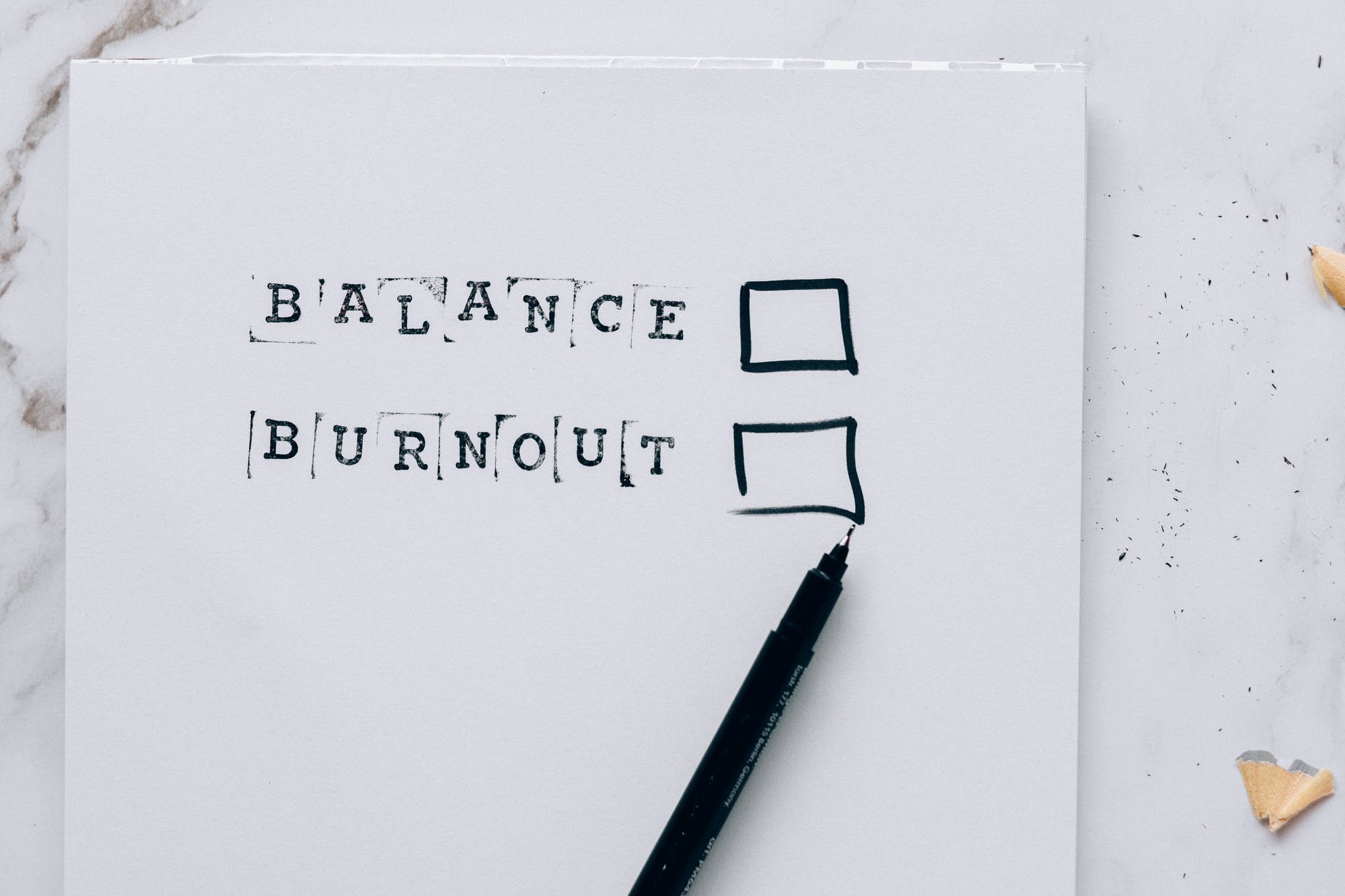Nursing Burnout: What Is It, Signs and How to Prevent and Combat It

Nurses make it their mission to help as many people as possible. They spend every minute on the job in service of others – healing them and trying to make some of the most challenging times the patients have to go through less daunting.
But there will likely come a time when the long hours, the inefficient nurse-to-patient ratios, and the emotional struggle of losing a patient will get to you. The nursing profession doesn’t lack its share of stress factors. And if you don’t catch these stress factors early on and do your best to prevent them, they can – and will – lead to burnout.
Nurse burnout is a growing concern in the healthcare industry. It affects the quality of care as much as it does the nurses’ health, job satisfaction, and well-being. The only way for RNs to have rewarding and healthy professional lives is to understand this phenomenon and learn to combat it.
In this guide, you’ll find what causes it, how to spot it, and, most importantly, ways to prevent burnout in nursing.

What Is Nurse Burnout?
The World Health Organization (WHO) describes burnout as an “occupational phenomenon.” It specifies that it is a “syndrome conceptualized as resulting from chronic workplace stress that has not been successfully managed.”
Burnout has three main characteristics:
- Feelings of being completely drained of energy; mental, physical, and emotional exhaustion – Burnout will often occur when your tiredness is no longer just physical, but it affects your emotional state, as well. When you lack the motivation to get out of bed, you don’t have the energy to finish your tasks. That’s how you know burnout is lurking in the shadows.
- Negative attitude or feelings of cynicism related to the job – When battling burnout, it will feel like your job is no longer necessary or meaningful. Once the spark that ignited your passion is dimmed, you’ll find it harder to keep a positive attitude about what you do.
- Reduced professional efficacy – Nurse burnout directly affects the quality of care. Scientific studies have proven over and over again that burnout negatively impacts patient care and safety. A cross-national scientific study analyzing data from 53,000 nurses found that higher levels of burnout were associated with lower ratings of the quality of care across countries. A similar result was presented in a 2017 study published in the Journal of General Internal Medicine, which concluded that greater burnout rates among healthcare providers were linked with poorer-quality healthcare and reduced patient safety. Hence, it’s clear that nurses experiencing burnout aren’t as effective at their job as they could be.
In addition to these three characteristics identified by WHO, we need to mention two more traits of this occupational phenomenon: depersonalization and dissatisfaction in personal achievements.
- Depersonalization happens when a nurse has an unfeeling or impersonal response toward recipients of their service, care, treatment, or instruction. A Registered Nurse going through depersonalization might be less empathetic, less compassionate and caring towards patients.
- The diminished sense of personal achievements is also very detrimental. Undoubtedly, nurses are a crucial part of healthcare delivery. However, burnout brings along the feeling that they aren’t really making a difference.
There’s an important remark to make. Everyone will experience at one point or another exhaustion, lack of motivation, and negative emotions. It’s human nature – we can’t always be optimistic. However, when you go day after day through the stages we described above – that’s when you know something is wrong, and you need to take action.

Nurse Burnout Statistics
Nursing experiences one of the highest rates of burnout. A meta-analysis published in 2023 indicates that the rate of nursing burnout was as high as 68% in the post-pandemic era.
It is also both an individual and institutional concern and combating nurse burnout starts at the individual level and extends to the entire organization. A study published in 2021 found that 31.5% of the RNs that had left their job did so because of burnout.
The statistics are daunting. Preventing and combating nurse burnout should be a priority, both for the nurses and their employers, as it proves just as detrimental for patients as it is for nurses.

What Causes Nursing Burnout?
Multiple factors can lead to burnout.
Long work hours: Working 12-hour (or longer) shifts is a common practice in the nursing field. However, working for so long, almost constantly on your feet, with very few breaks, leads to stress, exhaustion, decreased productivity, and ultimately, burnout. One study identified that working 20 hours per week or more was correlated with higher odds of burnout.
Inefficient work environments: Sometimes, health institutions are poorly managed. They lack Nurse Leaders, and, as a result, Registered Nurses are not included in decision-making that directly affects them.
Specific work settings: Some workplace types are also correlated to higher odds of nursing burnout, with hospitals being the main setting.
Inadequate staffing The poor nurse-to-patient ratios contribute to nurses being overworked, and consequently, less efficient and more prone to experience burnout. The nursing shortage and inadequate staffing negatively affect the RNs already engaged in the workforce.
Emotional stress: Caring for suffering patients day in and day out, being surrounded by trauma, pain, and even death is bound to take a toll on the RN’s well-being. Compassion fatigue will be even stronger and harder to manage in overworked nurses who deal with 12-hour shifts.
Symptoms and Signs of Nurse Burnout
It’s easier to combat something when you can read the signs in time. Here are some frequent nurse burnout symptoms and warning signs:
- Getting to work late
- Calling in sick way more than necessary
- Displaying a negative attitude in the workplace
- Being against any changes in the workplace
- Disengaging from social circles
Once you manage to spot these symptoms, you’ll be better equipped to implement the strategies that help you overcome burnout.
Combating Burnout: Tips and Tricks for Nurses
Of course, Registered Nurses are better professionals when they can avoid burnout. Here are some strategies that will help you keep the compassion fatigue and the overarching burnout feelings in check:
- Find out what stresses you and try to come up with solutions to minimize it.
Sometimes just putting pen to paper and making an inventory of your anxiety-inducing factors can be healing. After this step, try brainstorming ways to reduce the strength of each stress factor. That might mean asking a colleague for help when you feel overwhelmed or having a chat about your schedule with your Nurse Manager.
- Practice self-care
Before you can take good care of your patients, you need to make sure you take good care of yourself. This can involve taking a bubble bath after work, going for a walk in nature, meditating, or whatever else makes you feel good and relaxed. Self-care is a personal matter, so you need to figure out what activities and practices support your well-being as an individual and as a professional.
- Develop a regular sleep routine and make sure you get enough sleep
The importance of sleep for your physical and emotional health cannot be understated. Here are some tips and tricks on how to make sure you get a good night’s sleep. If you have trouble falling asleep, you can use relaxation apps to aid in sleep onset. Avoid alcohol, spicy food, and nicotine for two-three hours before going to bed. Try to avoid caffeine for at least five hours prior to bedtime. Also, try to avoid sunlight or very bright lights for at least an hour before turning in for the night.
- Don’t underestimate the power of naps
If you time your naps strategically, that can help decrease fatigue. Generally, short naps of up to 30 minutes will help reduce exhaustion levels during work shifts. If you have to work the night shift, taking a longer nap, around one hour and a half, can help you prevent fatigue.
- Healthy activities will get you a long way
In addition to getting enough sleep, you should also eat healthy, exercise, drink enough water, and so on. But don’t be overly critical of yourself if you don’t manage to go running in the morning or have an unhealthy snack once in a while. If you don’t have time to exercise, you can climb the stairs instead of taking the elevator – it’s already progress.
- Prioritize your mental health
So often, taking care of your physical health takes precedence over your mental health. However, caring for your mental health is at least just as essential. Talking about your feelings can help you get through the most challenging times. So does practicing gratitude and staying connected with people who can provide emotional and practical help.
- Boundaries, boundaries, boundaries
Setting boundaries for yourself and others is not always easy. But when your mental well-being is at stake, you need to learn this skill. If you already have too many tasks at work, learn to say no when a colleague tries to get you to do something for her. If you have to wake up early in the morning, don’t stay up past a certain hour watching TV. If you want to have a nice meal with your family, don’t look at your phone screen every minute to check your work notifications.
- Build strong interpersonal relationships
Both at home and work, you need to have a strong support system to lean on when things get tough. Find a colleague with whom you can check in on how you’re doing and how you’re coping with all your duties and responsibilities. Ask friends or relatives to help out when tasks at home get overwhelming. Having people you can count on will make a real difference.
- Don’t be afraid, shy, or embarrassed to ask for support
Asking for help when you need it most is a sign of strength. Most healthcare institutions will provide resources to employees to help them cope with stress, fatigue, and burnout. Programs can be very different: wellness programs, counseling sessions, self-care workshops, and other employee assistance programs. Studies also show that nurses who participated in wellness programs recognized their impact. Several other studies indicate that workplace interventions to improve the well-being of nurses also have positive effects in reducing burnout.
- Do your best to have a work-life balance
It’s not easy maintaining a proper work-life balance, especially as a Registered Nurse. However, you still have to separate these two sides of your life. When your shift ends and you leave work, you need to leave the worries, stress, and bad feelings there. When you’re at home, you need to be present and mindful and focus on your family and life outside work.

Preventing Nursing Burnout: Strategies for Employers
The prevalence of nurse burnout hasn’t gone unnoticed by healthcare institutions. However, they must recognize the negative impact of this phenomenon and actively implement actions and strategies to alleviate its adverse effects. Here are some of the most critical steps medical institutions can take to tackle this problem.
- Ensure that Nurse Leaders have the proper training to recognize and address signs of burnout. Nurse Leaders play a fundamental role in the good functioning of any healthcare organization, including making sure that burnout doesn’t get the best of nurses. That’s why NLs must be proficient in recognizing the burnout symptoms and addressing them early on.
- Prioritize efficient staffing. Overworked and overwhelmed RNs are much more prone to burnout. There’s scientific evidence backing up that statement and proving that improved nurse-to-patient ratios can make a real difference. A study showed that in institutions where the nurse-to-patient ratio was 8:1, RNs were twice as likely to experience emotional exhaustion, job dissatisfaction, and burnout than in hospitals where the ratio was 4:1.
- Nurses must be part of the conversation. When RNs are involved in decision-making, policy discussions, and scheduling, they are less likely to experience burnout. More autonomy and control over their practice will help nurses feel valued and heard.
Make sure there are support programs in place. Support programs, wellness programs, access to counselors, self-care workshops can tremendously help nurses cope with the job pressures.

